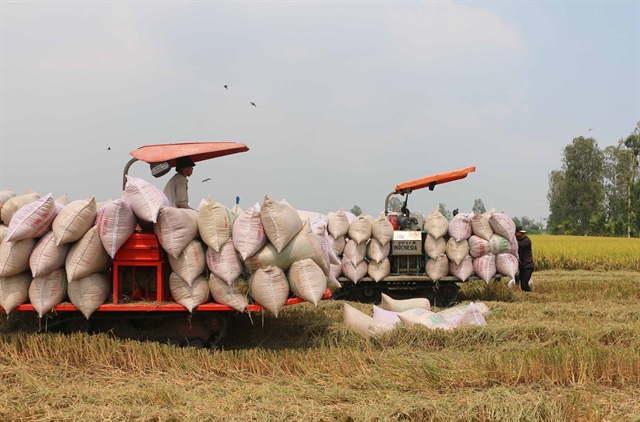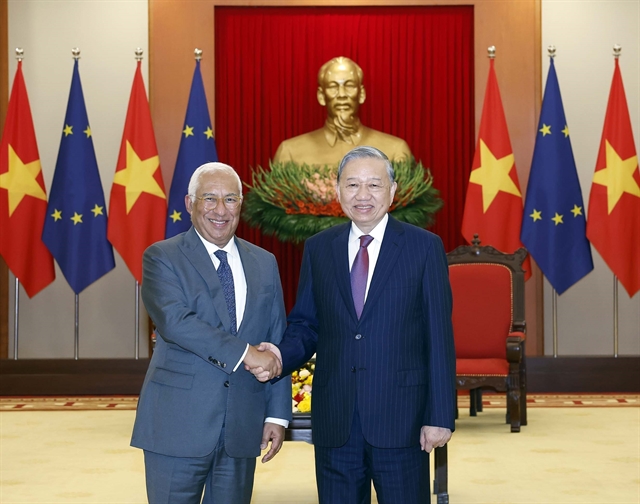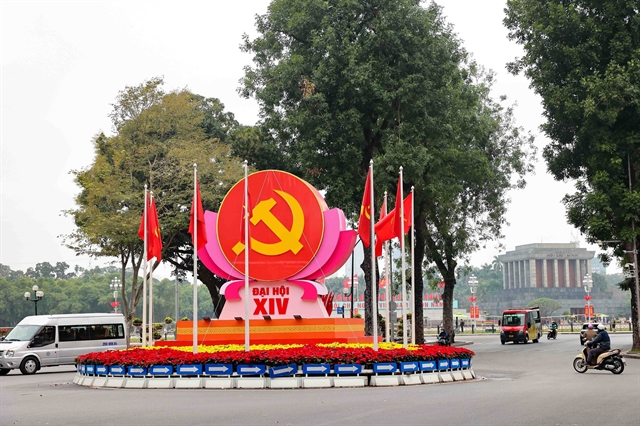 Expat Corner
Expat Corner


|
| A foreign teacher at an international school in Việt Nam. Photo baochinhphu.vn |
Ray Riches*
Just like in most non-English-speaking countries, the role of a TESOL-trained English language teacher is a vital part of shaping young minds and supporting global business in Việt Nam. Over the past few decades, the English as a Second Language (ESL) industry here has undergone monumental changes – but has all of it been for the better?
Having worked in Việt Nam’s ESL system for over a decade, I’ve often found myself wrestling with the concepts of 'accredited' and 'legitimate'. While these terms are clearly defined under the law in my home country, their application in Việt Nam is far more ambiguous. The lines are blurred, and the standards – though improving – are still inconsistent.
Every year, particularly at the end of summer, Việt Nam experiences a surge of foreigners arriving from all corners of the globe: Pakistan, Nigeria, Scotland, Australia and beyond. These individuals, ranging from young backpackers to retirees, come seeking the experience and reward of teaching English. Some are genuinely passionate and well-qualified. Others, unfortunately, are not.
Historically, the ESL industry in Việt Nam has been plagued by underqualified individuals slipping through the cracks. But to the Government’s credit, there have been significant efforts to clean up the sector. Over the years, Việt Nam has implemented a series of reforms aimed at raising the bar for foreign teachers. Visa management and work permit allocation have seen numerous changes, especially before and after the pandemic. One of the most impactful reforms came in 2021, when a new law mandated that foreign teachers must hold a degree in pedagogy or in the subject they intend to teach. This made it considerably more difficult for unqualified individuals to obtain legal teaching positions.
As of this year, Việt Nam is home to over 70 language centres operated by organisations like ILA Việt Nam, employing more than 700 qualified expatriate teachers. These numbers reflect a growing commitment to quality and professionalism in the ESL sector.
The regulation of agencies and language centres has also improved. In the past, it wasn’t uncommon for opportunistic foreigners to exploit schools for a quick paycheck, often with little regard for educational outcomes. But today, heavy fines and even closures await businesses that fail to comply with regulations. This crackdown has had a positive ripple effect, pushing many of the so-called “backyard operators” – both foreign and Vietnamese – out of the industry.
With these positive developments, our children are now receiving a better, more consistent learning experience. But this progress brings us to another pressing issue: the legitimacy of the certifications foreign teachers use to prove their qualifications.
A quick scroll through social media reveals countless ads for TESOL or TEFL programmes priced as low as US$20. We all know what these are – fake certificate mills that churn out fraudulent credentials for people looking to con their way into a job. These scams are not only unethical but dangerous, undermining the credibility of the entire ESL profession. In response, some consulates have begun refusing to notarise suspicious certificates, emphasising the need for accreditation from recognised bodies.
On the other end of the spectrum, we have world-class institutions like Harvard, Yale, Oxford and Cambridge – names synonymous with academic excellence. Their programmes are rigorous, well-respected and far beyond the reach of most quick-fix online courses available across Asia.
So how do we define what’s acceptable and what’s not in TESOL/TEFL certification?
In Australia, the answer is relatively straightforward. The government maintains a comprehensive accreditation system known as the Australian Qualifications Framework (AQF), accessible at www.training.gov.au. This system classifies everything from vocational training to university degrees. If I choose to study a course in Australia, I can easily verify that the school is government-registered, that it delivers the required units of competency and that my certificate will be issued under government legislation.
I’m confident that other Western countries have similar systems in place. But what happens when you study in a country like Thailand or Italy, as I did 12 years ago? At the time, I had no way of verifying whether the college was accredited or legitimate. While I’m satisfied with the education I received, I still don’t know which countries would accept that certificate as valid proof of qualification.
More recently, I completed a degree in Education through an online programme based in France. The institution assured me that the degree would be certified by the French government, and it was. I have no doubt about its legitimacy in France – but does that mean it’s accepted in Cambodia, Japan or Việt Nam? Not necessarily.
In both cases, the legitimacy of the certification rests largely on the name of the institution and a government stamp. And that’s the crux of the issue: there is no universal standard for ESL teacher education. No global list of accredited colleges exists to assure learners and employers that a certificate will be accepted worldwide.
Consider this: a teacher from India may hold a degree and TESOL certificate that are entirely valid under Indian law, but those same documents might not be recognised in Ireland, and vice versa. The lack of standardisation creates confusion, inconsistency and – most dangerously – opportunities for fraud.
As the world becomes more interconnected and digital, we must find a way to standardise ESL certification and close the loopholes that allow fake credentials to flourish. Many of us have seen, first-hand, degrees and certificates being sold on the streets of Bangkok. For just a few dollars, you can buy a diploma from almost any university in the world. It’s a global issue, but one that has had a particularly significant impact on Việt Nam.
The demand for Western ESL teachers has created a lucrative market – one that dishonest operators were quick to exploit. Fortunately, the Vietnamese Government has responded with swift and decisive action. But the work is far from over.
It’s important to remember that not every English teacher needs to be a Ph.D. English is, at its core, about communication and immersion. Having committed, well-trained foreigners in the classroom helps young learners immerse themselves in the language in a way that online courses or AI programmes simply can’t replicate.
Việt Nam needs foreign teachers – but they must be the right ones. They must have the appropriate training, the right mindset and the skills to make a meaningful impact in the classroom.
This is a complex challenge, but one that the governments of Việt Nam and other Southeast Asian nations are actively addressing. Progress is being made every year. Let’s hope that these improvements continue, and that we find a sustainable balance – one that welcomes the right people into our communities to support and nurture the next generation of learners. VNS
*Ray Riches lives in HCM City and works as a teacher and freelancer. Apart from teaching, he is a keen runner and bicycle adventure rider. After ten years in Việt Nam, Ray has a love and passion for the smaller things and enjoys sharing his experiences with people all over the world.

.jpg)


